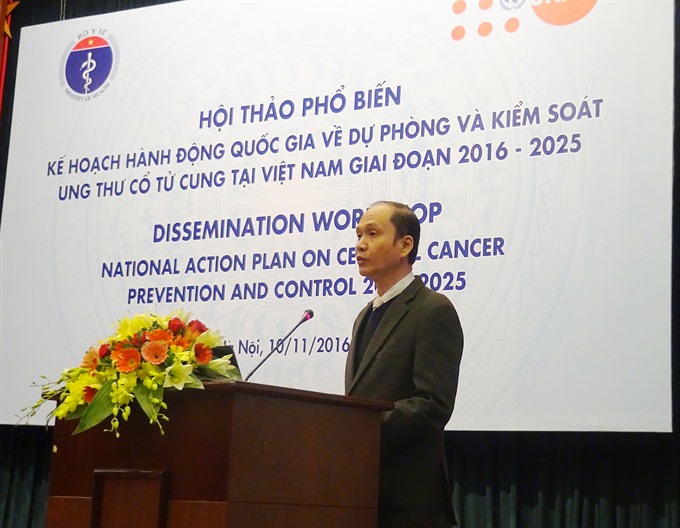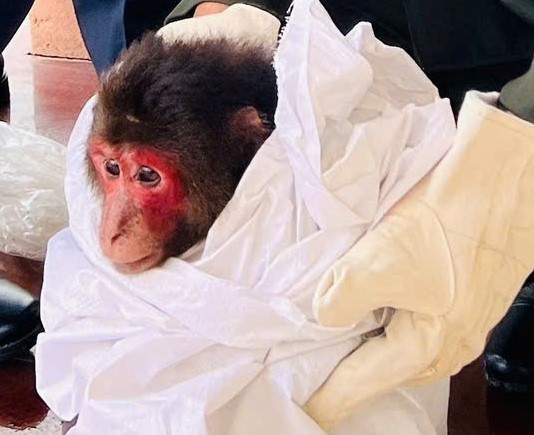

The goal of a national action plan is making sure as many as 60 per cent of women between the age of 30 and 54 receive cervical cancer screening and at least 25 per cent of women and girls receive human papillomavirus (HPV) vaccine by 2025.
 |
| Deputy Minister of Health Professor Lê Quang Cường gives a speech at The National Action Plan on Prevention and Control of Cervical Cancer launching ceremony. — VNS Photo Thu Trang |
HÀ NỘI — The Ministry of Health and the United Nations Population Fund (UNFPA) jointly launched The National Action Plan on Prevention and Control of Cervical Cancer in Viet Nam for the period from 2016 to 202 yesterday in Hà Nội.
Amongst its goals are making sure as many as 60 per cent of women between the age of 30 and 54 receive cervical cancer screening and at least 25 per cent of women and girls receive human papillomavirus (HPV) vaccine by 2025.
The action plan also strive to facilitate all of provincial and municipal hospitals to conduct cytological tests on cervical cancer by 2025 and to educate at least 70 per cent of mature adults with an understanding about the disease.
The comprehensive national response to cervical cancer includes prevention, screening and treatment.
Speaking at the conference, Deputy Minister of Health Professor Lê Quang Cường said that cervical cancer remains a public health concern that continues to threaten the welfare of women and the population.
A key challenge in fighting the disease is preventing late diagnoses, he said.
More than 70 per cent of cases are detected far too late, making management and recovery almost impossible.
Lack of awareness, inadequate health facilities and the high cost of treatment are all prohibitive factors, he said.
“In Việt Nam, cervical cancer is among the leading causes of cancer-related mortality. It is the fourth most common cause of cancer among women and the second most common female cancer among women of reproductive age,” he said.
In 2012, there were 6,200 women diagnosed with cervical cancer and about 2,400 who died from the disease, according to the Ministry of Health.
A 2008-2010 study conducted among women aged between 35 and 60 in seven cities and provinces in Việt Nam revealed that the national prevalence of cervical cancer was 19.9 cases per 100,000 women.
Astrid Bant, UNFPA Representative in Việt Nam, said, "Early detection and treatment of cervical cancer is not only integral to saving lives and improving women’s overall health, it is linked to poverty reduction, education and gender equity goals.”
“UNFPA, together with other development partners, remains committed to providing policy advice and technical assistance toward enabling human rights-centered laws and policies for Việt Nam to ensure “no one is left behind,” she said.
Doctor Partha Basu, a medical officer of the International Agency for Research on Cancer, said that the HPV vaccine was an essential element of prevention.
The World Health Organisation (WHO) recommended targeting girls aged 9 to 13 years-old for HPV vaccinations, he said.
Evidence shows that cervical cancer is highly preventable, and universal HPV vaccination of all girls at age 12 could avert 690,000 cases and 420,000 deaths worldwide over their lifetime, according to the WHO.
It is estimated that by 2030, the number of cervical cancer deaths is expected to rise to 443,000 globally, more than double the anticipated number of fatalities from pregnancy-related complications, WHO said. — VNS




